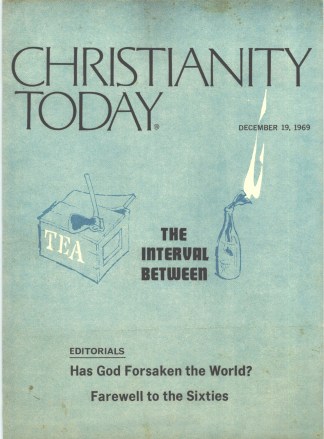Lutherans in Norway don’t want to break the old, established ties between their church and the state. But there seems to be rising doubt about the wisdom of a cozy relationship between religion and politics in the country.
Last month, the non-official but representative assembly of the Lutheran State Church voted 145 to 25 against a church-state separation. Approximately 96 per cent of the 3.8 million Viking descendants are members of the Church of Norway, and the connection between church and state goes far back in history. In line with the tradition of other predominantly Lutheran countries in Europe, the king has functioned as a kind of “emergency bishop” since the Reformation, and is regarded as “the first member of the church.”
When Norway got her independence from Denmark in 1814, the constitution (still in force) stated that “the evangelical Lutheran religion remains the official religion of the state.” The Norwegian Storting (parliament) passes church laws.
But more than a hundred years ago, a commission declared that the church was in danger of being “swallowed by the state.” “Our church is dependent on the state in a problematic way,” it said. “There are no guarantees its affairs will be taken care of in its own spirit and according to its own interests.”
Some reforms have since been made: parish councils are elected by the church members, and ten diocesan councils elect members to the Church Assembly, which meets every four years.
In 1965, a commission was appointed by the assembly “to rethink the position of the church in the society of today and discuss the need and possibility of reforms.” The commission report was the central concern of last month’s assembly, which called for a new commission to discuss the church-state issue.
A law for an official, central church council is already in the works. The reform commission proposed that the Church Assembly be given official status and that it take responsibility for passing most church laws. This would make the church more independent from the political and non-confessional Storting and bring it more in line with those in other Scandinavian countries.
Defenders of the present church-state relationship (evangelicals generally think along this line) say that the broad contact with the Norwegian people is a tremendous opportunity for spreading the Gospel, and keeps the church from becoming “ghettoized.” They also reason that a free church doesn’t assure a more sound theological position, and they fear that if the church is separated from the state, it will probably splinter into many independent groups.
At present, tax money pays pastors’ salaries, allowing the committed to concentrate their giving on evangelistic and missionary activities. There are several large, independent organizations for mission at home and abroad. The laymen’s movement in Norway has built hundreds of prayer-houses, private schools, and weekend cabins for youth; members are conscious of their place within and for the state church, but not under it.
Nevertheless, some have doubts about a church with twin focuses: a state church and a layman prayer-house. The official church is constantly in danger of losing its spiritual integrity, and though the prayer-house can nourish koinonia, it lacks some functions of the New Testament ecclesia.
The time has come for a separation of church and state, says Per Lonning, Norway’s youngest bishop in the last two centuries. He calls the present arrangement a “narcotic” and a means of escape from reality. Not so, cry other churchmen, who say it is rather a springboard for preaching and service.
Who is right? The answer isn’t easy. It may come by a new spiritual awakening—or by a great tribulation.
ASBJORN KVALBEIN










